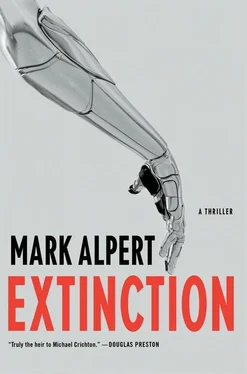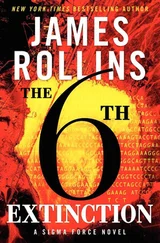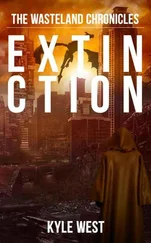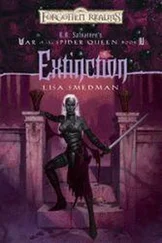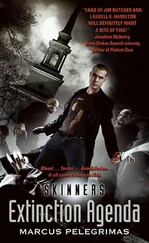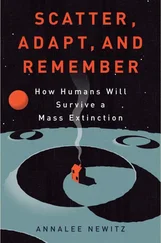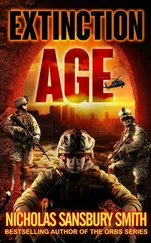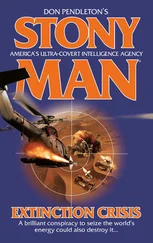But if there was one person in the world who Kirsten would gladly go to jail for, it was Jim Pierce. The man inspired loyalty. He’d also inspired other feelings in Kirsten over the years, but she’d learned long ago to keep them hidden. When she’d met Jim in the fall of ’93, he was happily married to Julia and had two young children. And later on, after his wife and son died in the embassy bombing, the thought of expressing her feelings to Jim had seemed wrong somehow—a violation, an unconscionable breach. So they’d drifted apart, which Kirsten had decided was for the best.
But now she was starting to wonder. Now Jim needed her. His plea for help had reawakened some of the old feelings. It was crazy, almost ridiculously reckless, but seeing him in such a vulnerable state had touched her heart. She was going to help him find his daughter. No matter what.
On both sides of the hutong were low, gray, shabby buildings, patched together with cinder blocks and scavenged bricks. Some were family compounds with courtyards that could be glimpsed from the alley through rusting gates. Other buildings had small shops on the ground floor, selling sodas or sweets or shish kebabs. The structures were so old they lacked sewage hookups, so the locals relied on the public bathrooms located every hundred yards along the alley. Kirsten pinched her nose each time she passed one.
The hutong made her think of her parents’ lives before they came to America. They’d come from the city of Wuhan, not Beijing, but their background had been similar. Although the hutong’s residents were poor, they didn’t look unhappy. Dozens of bicycles and motor scooters flitted down the alley, and there seemed to be enough commerce to keep everyone busy. No one paid Kirsten any mind; she’d deliberately dressed as a frumpy, middle-aged Beijinger, in a gray blouse, baggy black pants, white socks and cloth shoes. The only thing that could give her away was her NSA satellite phone, but it was tucked in a secret pocket she’d stitched into her pants.
She followed Nash for half an hour. After a while the bicycle and scooter traffic in the alley started to thin. Nash slowed his pace and gazed at the buildings to his right, obviously looking for something. Then he stopped at a gate, opened it, and walked through.
Kirsten waited half a minute, then approached the gate, which was closed but unlocked. The building behind it was plastered with yellow stickers warning in Mandarin that the structure had been condemned. Kirsten had seen these stickers on other buildings along the hutong; the Beijing municipal government was razing the city’s old neighborhoods and replacing them with modern apartment buildings. She gently opened the gate, trying not to make a sound, and entered a junk-strewn courtyard.
Old cans and bottles littered the ground. Evidently, this was the neighborhood dump. Stepping over the refuse, Kirsten walked toward the condemned building. Its front door was padlocked, but one of the windows on the ground floor gaped open. Curious, she examined the windowsill and saw fresh streaks in the dust. Frank Nash had just climbed through this window. Kirsten hoisted herself up to the sill and did the same.
The building’s ground floor had once been occupied by a shop, but now the shelves were bare. As Kirsten stepped away from the window and moved into the dark room, she adjusted the frequency setting on her glasses, switching the video cameras to the infrared range. This allowed her to see everything by its heat signature—the warm wooden walls, the cold steel shelves, the floor mottled with dust. And in the dust she saw footprints leading to a rectangle etched in the floor. It was a trapdoor, equipped with a cold metal handle. Crouching, she pulled the door open. Below, a stairway descended into the darkness.
She tiptoed down the steps. At the bottom was a tunnel with concrete walls and an arched ceiling. It was six feet wide and ten feet high and extended as far as she could see in both directions. Startled, Kirsten recognized the place—the tunnel was part of Beijing’s Underground City. She’d read about it after she joined the NSA, when she was training to become a China analyst. In 1969 Chairman Mao, worried about a nuclear war with the Soviet Union, ordered the people of Beijing to dig tunnels under the city. Over the next five years they built an elaborate network of fallout shelters, big enough to hold 300,000 people. It included underground apartments and enough supplies to feed the subterranean population for four months.
After Mao’s death, the Underground City was abandoned, but Kirsten had heard stories of long-forgotten entrances in the basements of Beijing’s buildings. Now she was delighted to see one for herself. With her glasses tuned to infrared, she could view the rusted pipes designed to provide clean water for the masses. She could even read the Mandarin characters of Revolutionary slogans chiseled into the walls. Beneath the slogans, she saw the characters dì tú —“map” in English—and a large brass plaque stamped with an intricate maze of lines and Mandarin labels. It was a map written in metal, impervious to decay, designed to survive for generations. Kirsten couldn’t read the map with her infrared glasses—the brass was all the same temperature—but by running her fingers over the labels she could make out the characters. The map showed a tangled weave of tunnels under the central part of Beijing and long spokes stretching toward the outlying districts of Tongzhou, Shunyi, Daxing, Fangshan, and Changping.
But Kirsten didn’t need the map to follow Frank Nash’s trail. She could see his footprints on the dusty floor. They ran a hundred feet down the tunnel before turning right at an intersecting corridor. She couldn’t imagine why Arvin Conway’s bodyguard had come to this place, but she suspected it had something to do with the device in the left pocket of his jacket. Although she saw no trace of the device’s radio signal in the tunnel, she knew it wouldn’t propagate very far underground. She kept her radio tracker turned on just in case it reappeared.
As she followed Nash’s trail, she passed dozens of small bare rooms. Those were the apartments where Beijing’s residents were supposed to hole up for four months while radioactive fallout swirled above the city. The tunnel went on for a hundred yards or so, then widened into a spacious chamber, about fifty feet wide. There was no concrete floor in this section; the ground was cold bare dirt speckled with warmer bits of debris. On closer inspection, these bits turned out to be the stalks and caps of mushrooms. Kirsten remembered something else from the NSA files on the Underground City: It included subterranean farms for growing mushrooms, which were the perfect food for surviving a nuclear winter because they didn’t require sunlight. An old rake, its tines flaked with rust, lay half-buried in the dirt at Kirsten’s feet. She picked up the tool, marveling that it was still there after all these years. Maybe some thrifty resident of the hutong was still harvesting the mushrooms.
Then, without any warning, a flashlight beam shone from a doorway at the other end of the chamber. On her infrared display Kirsten saw a small bright disk—the hot circle of plastic at the end of the flashlight—and the warm head of Frank Nash glowing above it. She saw no radio signal now, no red dot in the left pocket of his jacket. But one of his warmly glowing hands held a cold dark pistol.
The traffic out of Beijing was murderous as usual, so Arvin had to cool his heels in the backseat of the government limo. Guoanbu agent Liu Xiaofang tried to distract him by commenting on the sights visible from the highway—“There’s the Olympic stadium!”—but Arvin didn’t pay attention. He focused instead on what he was going to say to General Tian. Arvin would’ve much preferred dealing with Dr. Zhang, a forward-thinking scientist who in all likelihood would’ve been intrigued by the idea of downloading memories into one of Supreme Harmony’s Modules. Tian, in contrast, was a typical bureaucrat. Arvin had met the general during his earlier trips to China, and the man seemed concerned only with how the success of Supreme Harmony could boost his chances of promotion. So Arvin decided to appeal to Tian’s Machiavellian instincts. In addition to contributing $100 million to Supreme Harmony’s budget, Arvin would intimate that his proposed experiment might greatly interest the elders of the Communist Party, many of whom were in their seventies and eighties. China’s paramount leaders, always so nervous about maintaining their power, might wish to know if immortality was truly within reach. Arvin would gladly serve as their guinea pig.
Читать дальше
